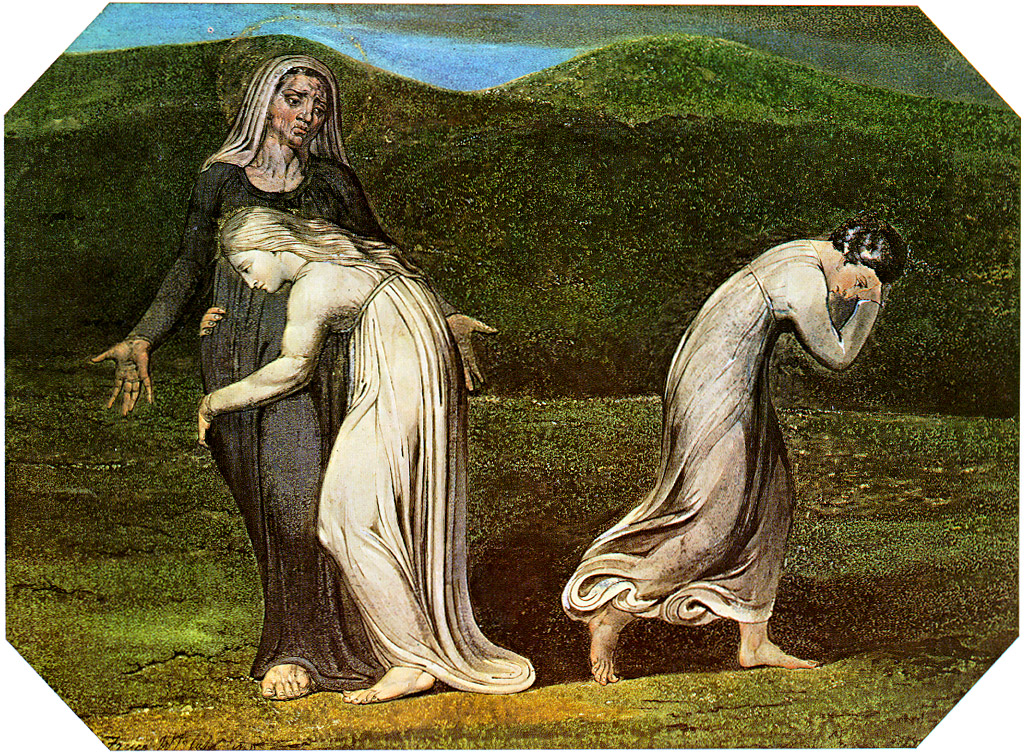
What We Learn From Ruth: The Brazenness of Vulnerability
She leaves everything she’s ever known on a hunch, a punt, a chance things will blossom into her wildest dreams in the land of Israel.
In a culture where we, too, often take the roads we’re taught to take: date that guy, graduate from that school, marry the dude, take the job, don’t give up the apartment, it’s easy to see how counterintuitive Ruth’s choices are.
And as we peruse the story of Ruth (read on the festival of Shavuot), even while knowing the happy ending that is to come, it’s almost cringe-worthy to watch what happens next.
She visits the threshing floor along with other poor women, hoping to be sought out by the wealthy, wise and respected landowner Boaz— who is a distant relative of Naomi’s family and her only hope of redemption in a society where women must be married to achieve any hope of stability and nourishment in life. Ruth walks along the fields in her demure way. She doesn’t stand up, she doesn’t shout out, she follows protocol until she has her strategy in place.
And then she makes her move.
In a scene that could be written by Nora Ephron, Ruth makes her way to the threshing floor the night of Boaz’s grand harvest, where the text informs us she uncovers his feet and lies there. Whether that was simply a respectful move or innuendo for a sexual favor at the time, the commentators try to decide, but all we humble readers know is that the lady is taking a leap. In the deepest display of vulnerability, far beyond leaving her home and following Naomi back to Israel from Moab, far from choosing to gather grain as a poor woman, she is making her plea to the most powerful man around with only her divine intuition that this is precisely where she’s meant to be to guide her.
The story ends happily, of course, as not every biblical tale does. On a festive holiday marked by flower garlands and petite cheesecakes, it’s just what we’re expecting before our happily ever after featuring the redheaded gentle warrior and prayer-filled musical composer, David, King of Israel, a descendent of Ruth’s.
And like so many narratives that lead up to pivotal moments for the Jewish people, it’s a moment of vulnerability that got us there.
Like Esther, who sheds her fears and makes the ominous walk to the king’s chambers unsummoned to plea for her people. Like Tamar, another ancestor of King David, who disguises herself as a paid sex worker to unite with her destiny, Judah and his tribe. Like Bathsheba, wife of King David, who attracted the king’s gaze on a roof where she bathed in full knowledge of her destiny, as only a woman in the throes of spiritual revelation can. These are the sacred seductresses and these are the mothers of our nation. Poised, determined, unwavering in their knowledge that in the brazenness of vulnerability comes destiny.
It’s not easy to be vulnerable, and in a world where women compete with one another for recognition among men, it’s easier to stand aside or to show strength and power. It is easier to stand for independence and might rather than humility, gratitude and collaboration. But perhaps Ruth is here to teach us the strength in vulnerability. The way our own lives can be shaped when we aren’t afraid to ask, to seek, to follow the path we feel called toward even if it means leaving everything behind.
I’ve experienced the path of Ruth numerous times; and I always feel within me that impulse, that propulsion that I imagine our foremothers experiencing in her moments of certainty amid confusion.
Of knowing you’re following your destiny even as you leave behind that job and recognize there’s something better waiting for you. Of feeling sure in your steps even if you don’t know where you’re sleeping at night and all that’s ahead of you is an open road.
I experienced Ruth when I moved countries, leaving behind 25 years in one land to try my hand at another. I experienced Ruth when I chose to travel alone with only a few phone numbers in hand, compelled by destiny with no knowledge of what was ahead. I experienced Ruth when I took a turn and attended those moments I know shaped my life: the Shabbat dinner where I knew no one as I walked through the door, yet met those people who would soon be my closest confidantes and witnesses in transformation.
Ruth’s story is read during the harvest season, because she reminds is we all have that ability to blossom and grow. She reminds me every time that there is strength in asking for help. There is beauty and wonder in humility. There is knowledge and wisdom in learning from the elderly. There is bravery in leaving behind all you’ve ever known for the spark of potential in the future.
Rishe Groner is a writer and strategist living in Brooklyn. She is the founder of TheGene-Sis.com, a post-Hasidic embodied approach to self-transformation.
The views and opinions expressed in this article are the author’s own and do not necessarily reflect those of Lilith Magazine.



